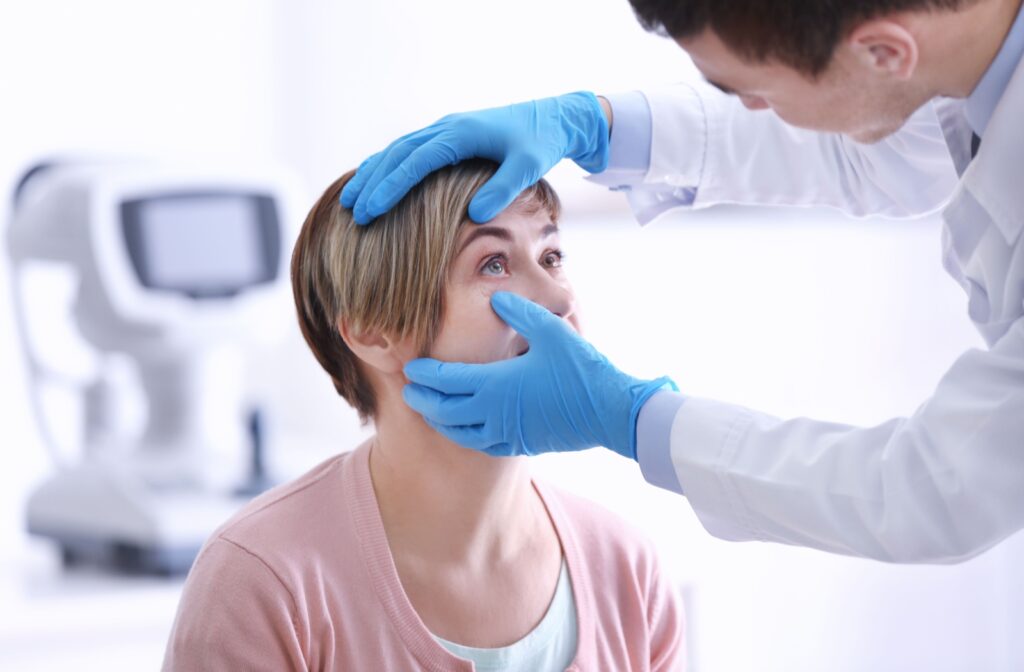Sometimes, your body has subtle ways of signaling something might be off, and noticing flashing lights in your vision can be one of those moments that grab your attention.
High blood pressure, also known as hypertension, can contribute to changes in your eyes, including experiencing flashes of light. That’s right, your heart isn’t the only body part that can be affected by high blood pressure. However, the retina is delicate, and flashes can be an early sign it’s time for an eye exam.
How Blood Pressure Affects Your Eyes
Your eyes depend on a network of tiny blood vessels to stay healthy and help you see clearly. These blood vessels deliver oxygen and nutrients to the back of your eyes, keeping everything working as it should. Without this steady supply, your eyes may not function properly, which could contribute to long-term damage.
High blood pressure has the potential to harm these blood vessels, which can lead to a condition called “hypertensive retinopathy.” This happens when high blood pressure damages the walls of the blood vessels in your retina, making them narrow, leak, or even burst. As it gets worse, you might notice symptoms like:
- Headaches
- Blurry vision
- Eye strain
- Swelling around the eyes
- Double vision
Hypertensive retinopathy can also be associated with a higher risk of serious eye problems like glaucoma, cataracts, and macular degeneration. High blood pressure may even lead to fluid buildup in the retina, which can worsen vision issues and cause permanent damage if untreated.
Unfortunately, early signs often go unnoticed, which is why regular eye exams and blood pressure checks are so important.
High Blood Pressure Symptoms
High blood pressure can be surprisingly subtle. It can sometimes go unnoticed for years because it might not have obvious symptoms until it becomes severe. Staying alert to potential warning signs can benefit your health. Symptoms to watch for include:
- Recurring headaches
- Shortness of breath during physical activity
- Persistent fatigue
- Episodes of confusion
- Unusual discomfort or pressure in the eyes
If left untreated, high blood pressure is a significant risk factor for serious health issues, including heart attacks, strokes, and vascular dementia, which affects memory and cognitive function. A proactive approach to health can help detect and manage this condition early.

A Closer Look At Flashes
The retina is a thin, light-sensitive layer at the back of your eye that helps capture what you see and sends that information to your brain.
High blood pressure can harm the tiny blood vessels around the retina, restricting blood flow and reducing how well it works. In some cases, high blood pressure can even cause these vessels to leak, leading to fluid buildup and vision problems like flashing lights or spots.
While high blood pressure is always a concern, it’s not the only cause of flashing lights in your vision. Other causes can include:
- Migraines
- Head trauma
- Eye injuries
- Neurological issues
A more serious cause to watch out for is retinal damage or detachment. This happens when the retina starts to pull away from the back of the eye, cutting off its blood supply. Retinal detachment is an emergency that needs immediate treatment to prevent permanent vision loss.
When to See an Eye Doctor
Occasional flashes of light in your vision can happen naturally due to aging or changes in the eye. These flashes can appear as brief bursts or streaks of light, usually in your peripheral vision, and are sometimes harmless. However, you need to know when they might signal a more serious problem.
If flashes of light come with other symptoms, like a sudden increase in floaters, loss of peripheral vision, or a shadow or curtain-like effect over your vision, it could be a sign of retinal detachment or another serious eye condition. Retinal detachment can cause permanent vision loss if not treated quickly, meaning sometimes these symptoms indicate an eye emergency.
Here are key warning signs of an eye emergency to watch for:
- Intense pain in one or both eyes
- Persistent flashing lights or floaters
- Unexplained blurriness or dark spots
- Sudden and significant vision loss
Even if you experience flashes without other symptoms, it’s a good idea to see an eye doctor. A thorough exam can help identify the cause and help keep your eyes healthy. Early diagnosis and treatment can help prevent more issues.
Protecting your vision is an important part of overall health, so if you’re concerned, consulting a professional is a good step.
A Proactive Approach to Eye Care
Taking proactive care of your eyes is vital, especially if you have high blood pressure. It can affect the tiny blood vessels in your eyes, sometimes causing blurry vision or more serious problems if not addressed. Regular eye check-ups can catch issues early and help keep your vision clear and your eyes healthy. At Restore Vision Center, we’re here to help! Our team combines precise diagnostic technology with personalized care to keep your eyes in great shape. Book your appointment today, and let’s work together to protect your vision.




